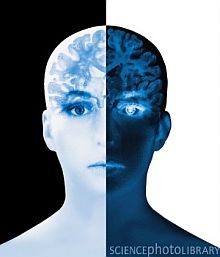
Stress contributes to depression through: Identifying and understanding the meaning of the life event stressor can be all-important in assisting people to improve their mental health and wellbeing. shame due to not living up to your own or others’ expectations.For most adults, self-esteem is closely linked to an intimate relationship as well as in other important areas, such as a job.Ĭommon triggers of depression related to self-esteem include: The events that are most likely to ‘trigger’ depression are ones where self-esteem is put at risk, compromised or devalued. Most people who develop depression usually describe an important and understandable life event that occurred before the depression started. It may cause depression at the time, but it does not necessarily lead to depression in adulthood in any direct way. The death of a parent in childhood does not appear to be a distinct stressor. Lack of parental care may result in the child developing low self-esteem and thus being vulnerable to develop depression in adult life. Past and long-standing stressors (distal stressors) can increase the chance of developing depression.Īn uncaring or abusive parent is an example of a past stressor that has been linked to the development of depression. These life events and related stresses can ‘trigger’ a depressive illness in people with a vulnerability to depression. Money problems, unemployment, childbirth, divorce, a death in the family and other losses can cause us to feel upset and depressed. Nearly every one of us can be stressed and depressed by certain life events. Personality style is just one contributing factor. Remember: just because you have one of these personality styles, it doesn’t necessarily mean you will develop depression. ‘rejection sensitive’ personality style (hypersensitive to the quality of interpersonal relationships and perceives others as rejecting or demeaning them).‘self-critical’ personality style (low self-esteem and gives themself a hard time).‘personally reserved’ personality style (wary of others getting too close and becomes vulnerable and depressed when their inner worlds are exposed to others).‘socially avoidant’ personality style (shy and avoids social situations due to a fear of their limitations, being exposed or of being criticised by other).‘irritable’ personality style (easily rattled and with a low tolerance for frustration).‘anxious worrying’ personality style (highly strung, tense, nervy and prone to stewing over things).The following personality styles have been associated with a greater risk of depression: Certain personality types are more at risk of developing depression than others. Personality and temperament can contribute to depression. Ketamine treatment is currently available at the Black Dog Institute through a research trial. Ketamine has been shown to powerfully reverse these changes. Research has also shown that cells in some parts of the brain can shrink when people are depressed. In people with more severe depression, other neurotransmitter pathways such as those for noradrenaline and dopamine are also likely to be functioning abnormally. In all types of depression, it is likely that the transmission of serotonin is reduced or disrupted. The signal is either depleted or disrupted before passing to the next nerve cell. In people who are depressed, the mood regulating neurotransmitters don’t function normally.

In normal brain function, neurotransmitters jump from one nerve cell to the next with the signal being as strong in the second and subsequent cells as it was in the first. Three important ones that affect a person’s mood are serotonin, noradrenaline and dopamine. Neurotransmitters are chemicals that carry signals from one part of the brain to the next. There are many neurotransmitters, serving different purposes. It’s likely that with most instances of clinical depression, neurotransmitter function is disrupted. We are currently doing research into exactly what happens in the brain to cause depression. Or they might talk about life events, such as the death of a loved one, long term stresses, and abuse. Sometimes, doctors talk about biological causes – genetics, brain chemistry and personality. It’s important to emphasise that depression is not a sign of personal weakness, failure, or ‘all in the mind’.Įach of us are unique and will respond differently when exposed to environmental, social or psychological triggers.
#Depression quiz beyond blue how to
Knowing about the causes and risk factors for depression can help you understand why depression occurs and how to deal with it.


We also know that depression can occur during pregnancy and the postnatal period.



 0 kommentar(er)
0 kommentar(er)
